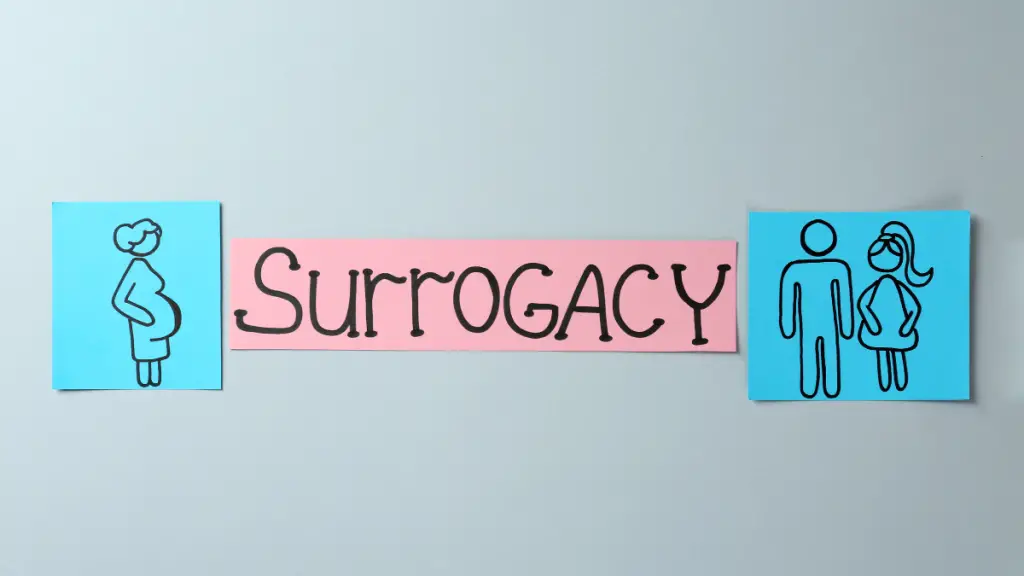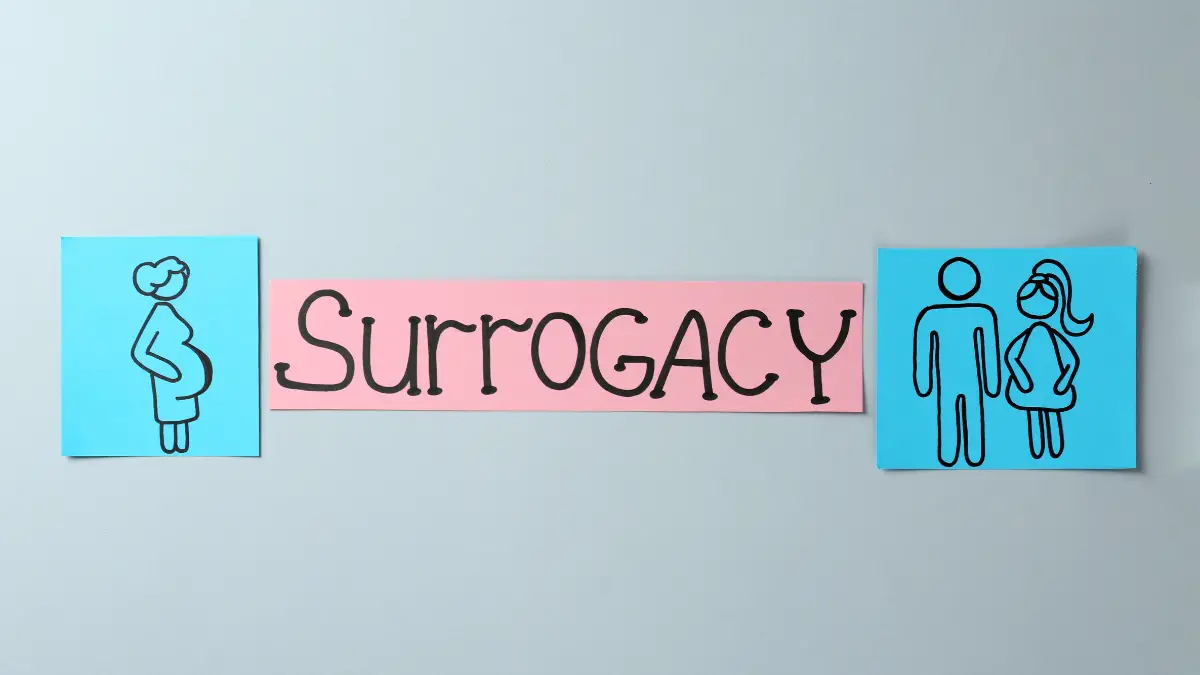Once thought of as a foreign concept, surrogacy is here, not just in America anymore. How do we feel about that? A lot of different people feel a lot of different things, so why not talk about it. This article will focus on surrogacy in Nigeria.
The first successful surrogacy happened in 1985, when a surrogate carried a child completely unrelated to her genetically. Since then, the process has evolved with legal contracts, unspoken agreements, and plenty of controversy.
In Nigeria, the conversation is relatively new. Some see it as hope, others as moral failure. There are those who welcome it quietly, and others who outright reject it. It’s complicated by our views on womanhood, bloodlines, money, and even God.
What started as a lifeline for couples struggling with infertility has now evolved, as things often do, into something available to anyone who can afford it. But as Africans, as Nigerians, our ideals don’t always match the white man’s. So we ask: is surrogacy really a good idea for us?
The Ethics of Surrogacy
At the heart of surrogacy lies a difficult question: who are we really empowering? On paper, it looks like a win win. A couple gets the child they have longed for, and a woman gets paid for helping them. But the reality is more layered than that.
Surrogacy can be the answer to many situations. Some are medical, like a woman without a uterus or one with a health condition that makes pregnancy dangerous. Others are non medical: single men or same sex couples who want biological children, or even women who simply prefer not to go through the physical toll of pregnancy. As the reasons expand, so do the ethical concerns.
In many Nigerian cases, surrogates come from financially vulnerable backgrounds. The money they receive can change their lives, clearing debts, paying school fees, or simply putting food on the table. But does that make it a choice made in freedom, or one made out of survival? When poverty is involved, the line between empowerment and exploitation starts to blur.
Then comes the issue of bodily autonomy. From the moment a woman agrees to carry someone else’s child, how much control does she really have? Can she decide what she eats, how she moves, when she rests? And more importantly, what happens if a complication arises? Who decides whether to continue or terminate the pregnancy? Who has the final say on whether she delivers by C section or vaginally? These are no longer just medical decisions. They are tied to contracts, money, and emotion.
And that leads to something harder to admit – the commodification of reproduction. Pregnancy, once deeply personal and sacred, is now something people can outsource. And with that comes more uncomfortable questions. What happens if the pregnancy does not go as planned? If the baby is born with complications, who bears the cost emotionally, financially, or otherwise? Can a contract prepare anyone for that?

The Law on Surrogacy
Some countries ban it completely. Others allow it only when there is a medical reason. But truthfully, if you have enough money to afford surrogacy in the first place, you can just go to a more accommodating country and get it done.
In Nigeria, there is no law specifically guiding surrogacy. It is simply treated as a contract and falls under family law. So whatever is agreed upon binds the parties involved, just like any other contract would.
After the baby is born, the intended parents still have to go to court to get a custody order. That is what officially transfers parental rights from the surrogate to them. Until then, the surrogate is legally seen as the mother.
But what happens when things go wrong? What if the surrogate is not properly informed, or there is no written agreement at all? What if everything was just discussed and sealed with a handshake? What happens if someone changes their mind halfway through? If the case ends up in court, and it might, what is the law? What is the precedent?
Without proper legal backing, everyone involved is left vulnerable. And when the ethical lines start to blur, the absence of clear laws makes everything harder. Right now, people are relying on good faith and carefully worded contracts, but good faith cannot always stand up in court.
The Beliefs on Surrogacy
For many Nigerians, the bigger concern with surrogacy is not the law. It’s what religion and tradition have to say.
In Christianity, some churches support it quietly, especially for married couples struggling with infertility. Others see it as interfering with God’s plan. IVF alone raised eyebrows. Now, letting someone else carry the child? For many, that’s going too far. Some even believe such babies have no soul because they were not created by God.
In Islam, the rules are stricter. The child must be genetically linked to both the husband and wife. No donor eggs. No donor sperm. And definitely no one carrying a child outside of marriage. Even if the surrogate is only helping, it’s still seen as crossing a line in Islamic family law.
Traditionally, motherhood is deeply tied to pregnancy. A woman is expected to carry her child. Anything else is often viewed as unnatural or dishonest. Some believe using a surrogate undermines womanhood. For men, it can be seen as a failure of masculinity, the unspoken belief that a “real man” should be able to get his wife pregnant.
All this leads to stigma, secrecy, and inner conflict. People hide their surrogacy journeys, sometimes even from close family. For many Nigerians, religious and cultural disapproval weighs heavier than any legal risk.
Public Scrutiny, Privilege, and the ‘why not just adopt?’ question
In Nigeria, the moment someone chooses surrogacy, people expect an explanation. You don’t owe anyone that, of course. But the truth is, society doesn’t work that way. People talk. They speculate. They assume. And if you’re a woman, especially one who didn’t carry her child yourself, people won’t be so quiet.
Then there’s the issue of class. Surrogacy is expensive. So is it just a luxury for the wealthy, while everyone else makes do with the “natural way”? That question cuts deeper than we think. Because if only the rich can access it, what does that say about fairness, especially in a country where healthcare itself is a privilege?
And always, someone will ask: Why not just adopt? It’s often framed as the more “noble” path. But adoption in Nigeria carries its kind of stigma. People point out differences between adopted and biological children. Some even believe adopted children will eventually search for their “real” parents. So while adoption may seem like a simple alternative, it’s not without judgment either.
CONCLUSION
Surrogacy is not just a medical process. It’s an emotional, cultural, legal, and deeply personal journey. Some see it as hope wrapped in science, while others see it as a disruption of everything we’ve been taught to hold sacred.
Still, families are being built every day through surrogacy. Quietly. And whether we agree with it or not, it’s happening. So instead of silence, or judgment, maybe it’s time for more honest conversations that make room for science, for choice, and for conscience.







